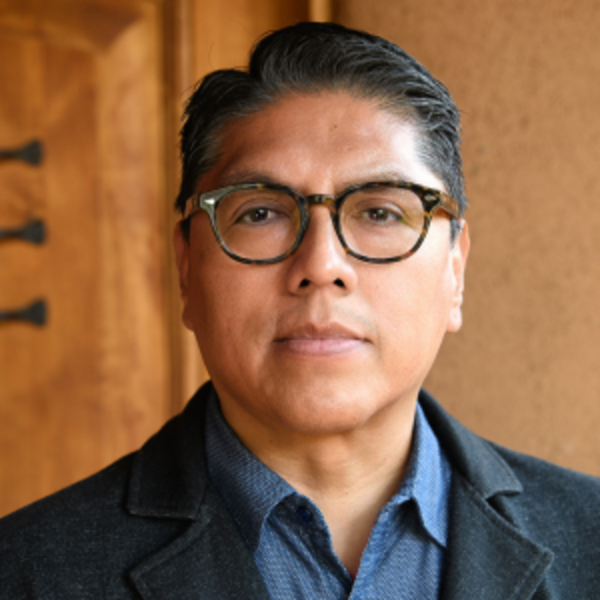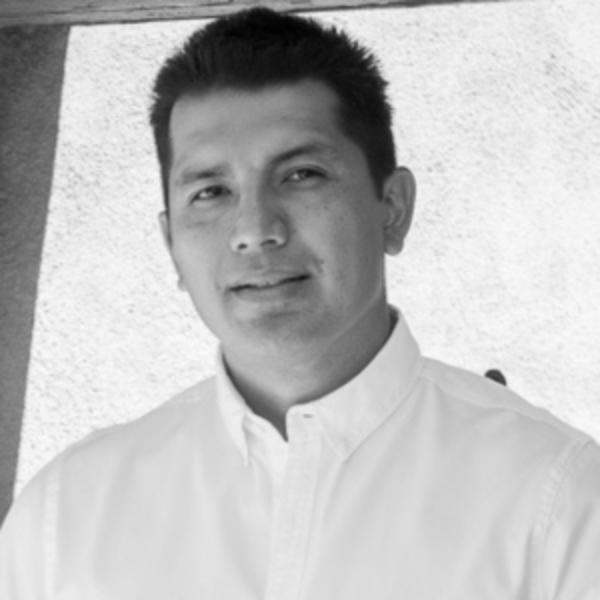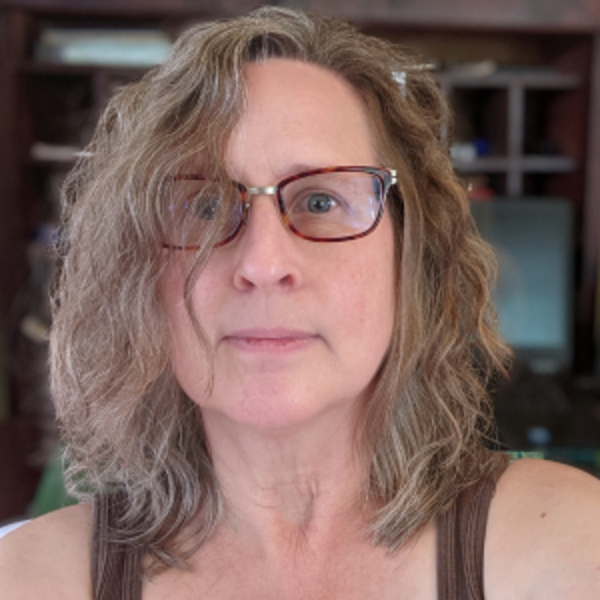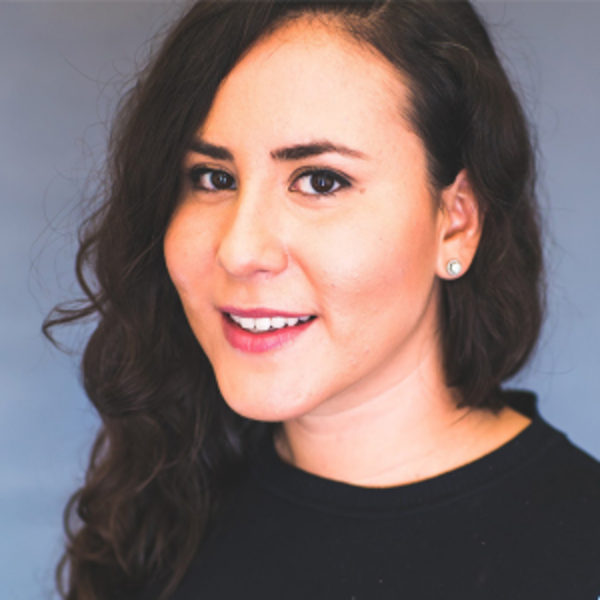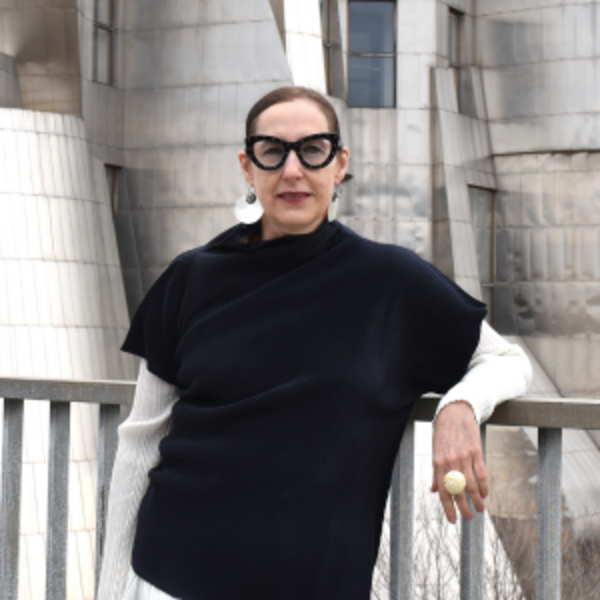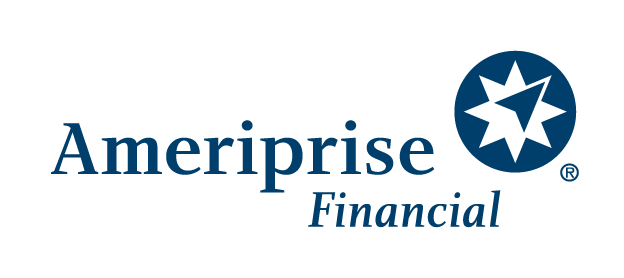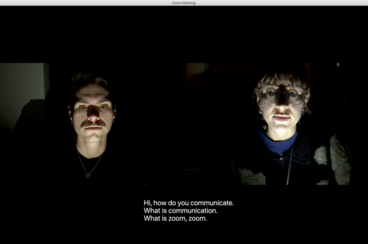This talk was recorded on November 15, 2023 and is available via the Weisman’s YouTube channel. This discussion aimed to shed light on the complex issues surrounding the return of cultural artifacts, institutional accountability, and the steps the Weisman Art Museum is taking to acknowledge and address historical and ongoing harms against Native communities.
Brian Vallo
Brian Vallo is a member of the Pueblo of Acoma tribe in New Mexico. With over 30 years’ experience working in historic preservation, repatriation of ancestors and cultural patrimony, language preservation, museum development, tourism, and the arts. Brian has dedicated much of his professional career advocating for and organizing collaborative approaches to addressing issues affecting Native American communities. Brian was appointed to serve three consecutive terms as Governor of his Pueblo from 2019-2021. He also served three terms as Lt. Governor and Tribal Secretary in 1992-1994. During his time as Governor, Brian led and participated in national initiatives focused on sacred sites protection, including the Greater Chaco Landscape in New Mexico. He also fostered advocacy around international repatriation and the development of new federal policy to address the illegal trafficking of cultural patrimony. Brian, and many tribal leaders worked tirelessly to ensure the passage of the Safeguard Tribal Objects of Patrimony Act (STOP Act) which was signed into law by President Biden in December 2022. Prior to becoming Governor, Brian served as Director of the Indian Arts Research Center at the School for Advanced Research in Santa Fe, NM where he was instrumental in the development and publication of the Guidelines for Collaboration, a resource for both tribes and museums. He also forged relationships with museums across the country, creating partnerships and opportunities for tribal communities, Native artists, and Native Museum professionals to advance the movement around creating meaningful change within colonial institutions. Currently, Brian is an independent consultant providing professional services to museums, universities, federal and state agencies, and private collectors in the areas of repatriation, exhibit development, collections stewardship, policy assessment and development. Brian serves on numerous boards including the National Museum of the American Indian, Chaco Heritage Tribal Association, Conservation Lands Foundation, Native Lands Institute, and the Keystone Policy Center. A self-taught artist, Brian is inspired by historic Pueblo pottery and the cultural landscape of his homeland, Acoma Pueblo.
Joseph Aguilar
Joseph Aguilar is from San Ildefonso Pueblo, New Mexico, and is a Senior Archaeologist with Bering Straits Native Corporation. He received his Ph.D. from the Department of Anthropology at the University of Pennsylvania. His general research interests include Indigenous Archaeology, museology, landscape archaeology, and tribal historic preservation. He is interested in exploring the links between tribal communities, anthropology and museums and as a result has worked as an advisor to several museums, including the Museum of Indian Arts and Culture in Santa Fe, the de Young Museum of Art in San Francisco, The MARKK Museum in Hamburg Germany, and for the School for Advanced Research in Santa Fe, NM.
Kat Hayes
Kat Hayes is an associate professor in the Anthropology department, affiliate faculty in American Indian Studies, and the current director of the Heritage Studies and Public History graduate program at the University of Minnesota. Her research ranges from archaeologies of settler colonialism to the investigation of archaeology as a tool of settler colonialism, with publications most recently in the Journal of African Diaspora Archaeology and Heritage, American Indian Quarterly, and the International Journal of Heritage Studies.
Misty Blue
Misty Blue, Misty Blue, MPH, citizen of the White Earth Nation and appointed by the Minnesota Indian Affairs Council (MIAC) coordinated the Towards Recognition and University-Tribal Healing (TRUTH) project. She assembled a team of Native scholars who have examined the past, present, and future of Tribal-University relations since the University opened in 1851. These Tribal Research Fellows conducted place-based, tribally-based research using archival and Indigenous methodologies around a self-determined topic. Each Tribal Research Fellow presented their experience and their findings at the TRUTH Project Symposium in May 2022. The TRUTH Project Final Report was released in April 2023. Overall, the TRUTH project has begun to expose how wealth has been transferred and accumulated through the institution since 1851. As a Tribally-led research movement, we unearthed how UMN raised more wealth than most U.S. land grab universities, making a 25,000% return on investment. Per state and federal legislation, these funds must be held in perpetuity, and have been bonded out to municipalities to grow the colonizer State of Minnesota. Profit persists through land sales, mineral rights holdings, special endowments, and the appropriation and commodification of Indigenous knowledges. Misty is a Senior Strategist at Grassroots Solutions and continues to examine Tribal-University Relations.
Alejandra Peña Gutiérrez
Moderator – Alejandra Peña Gutiérrez is Director of the Weisman Art Museum at the University of Minnesota. She has been working for 30 years as a visual arts and museum professional. Her career started in Mexico City where she worked at various museums before she became director of the Museo del Palacio de Bellas Artes. She was General Deputy Director of the National Institute of Fine Arts in Mexico before she moved to Puerto Rico to work at the Museo de Arte de Ponce, where she was the director from 2013 to 2021. Peña Gutiérrez is a Board Member of ICOM-US, and Co-Chair of their Programming Committee, she is also a member of the Risk Management Standing Committee of ICOM General.
